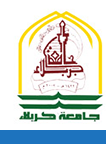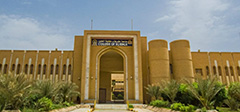Abstract
This research was aimed at identifying a bacterium that can produce alkaline proteases. As a result, bacteria that produce proteases were isolated from Batu tannery effluents, tested for protease synthesis on skim milk agar plates, and validated with a protease assay. Microscopic and molecular phylogenetic analyses identified Paenibacillus dendritiformis (BT7) as the bacterial isolate with the highest alkaline protease production. The isolate's maximum enzyme production was obtained by 2% inoculum size, 40°C temperature, 9.0 pH, and a 48-hour incubation time with production media components such as glucose, casein, MgCl2, and 2% NaCl. The maximal enzyme activity was 270 U/mL under all optimum culture conditions. Concentrated ammonium sulfate precipitation (75%) and dialysis were employed to obtain a cell-free, partially purified protease. The specific activity of the dialysate, which accounts for 3% of the enzyme yield, was discovered to be 134 U/mL. The partially purified protease was used for application in blood stain removal. It was studied and found that the alkaline protease resistance under stringent conditions is very stable with bleach detergent. Also, this enzyme could clean blood-stained fabrics. This study shows that the alkaline protease from Paenibacillus dendritiformis - BT7 could be used in various ways in the detergent industry that are good for the environment.
Recommended Citation
Masi, Chandran; Tadesse, Degafneh; and Ayele, Abate
(2022)
"Potential use of proteolytic bacteria Paenibacillus dendritiformis (BT7) isolated from Batu tannery effluents for the detergent industry,"
Karbala International Journal of Modern Science: Vol. 8
:
Iss.
4
, Article 10.
Available at:
https://doi.org/10.33640/2405-609X.3267
Creative Commons License

This work is licensed under a Creative Commons Attribution-Noncommercial-No Derivative Works 4.0 License.




